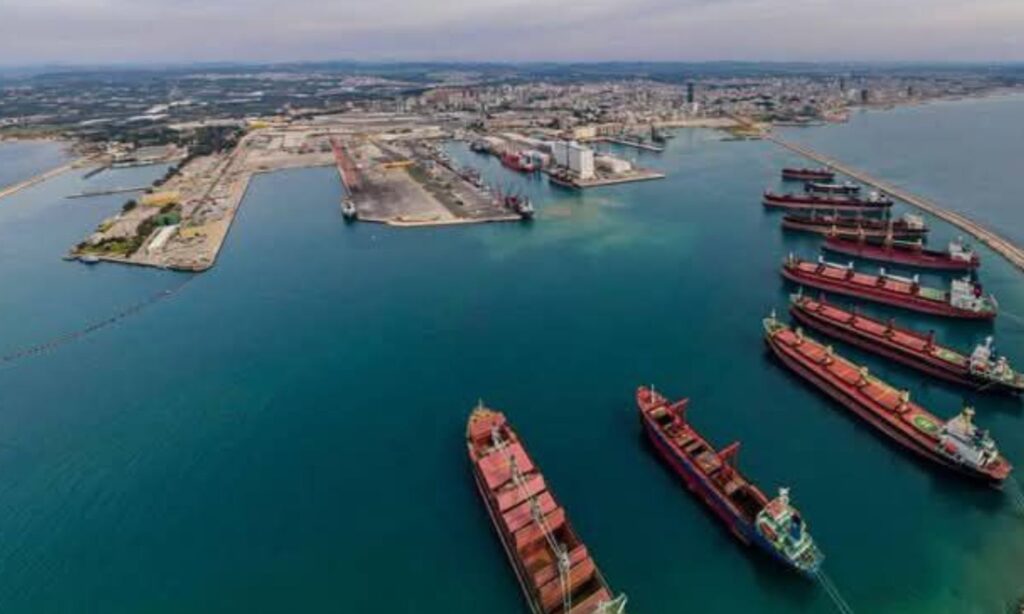The General Authority for Land and Sea Ports in Syria sparked controversy with its decision to increase the licensing fees for customs clearance and transit offices, which serve as a link between the government and the private sector.
According to the decision reviewed by Enab Baladi, the authority stipulated an annual licensing fee of $5,000 for customs clearance companies and $10,000 for transit companies.
Additionally, a guarantee deposit of $50,000 must be paid to the central customs clearance company, along with $5,000 for the branch office, as a guarantee for any fees or financial obligations to the public treasury, which will be refunded to the company upon termination of operations if it is in good standing.
The central transit company is required to pay a guarantee deposit of $500,000, with $50,000 due for the branch office.
According to the official bulletin from the Central Bank of Syria (CBS), the exchange rate of the Syrian pound against the US dollar is 12,000 SP, while the black market rate is 10,375 SP, as reported by the S-P Today website.
Customs clearance involves a series of procedures that facilitate the legal transport of goods across international borders, whether imports or exports, ensuring that these goods comply with local and international customs laws and protecting the rights of the state and the national economy while facilitating legitimate trade.
Abdul Rahman Abbas, the director of a customs clearance office in Damascus, told Enab Baladi that the amount required to be paid to the Ports Authority for renewing his office’s license is extremely high, and he is unable to afford it.
He added that he has been working in this profession for 30 years, employs around 50 workers, and will have to sell his warehouses and turn to other businesses.
Objectives and implications of the decision
For his part, the Director of Public Relations at the General Authority for Land and Sea Ports, Mazen Alloush, explained to Enab Baladi that several reasons led to this decision, including:
- Sector Regulation: Establishing clear standards for the practice of customs clearance, transit, and shipping agency professions to ensure transparency and efficiency.
- Corruption Prevention: Requiring applicants to have no criminal convictions (such as bribery or smuggling) to limit illegal practices.
- Quality Improvement: Mandating educational qualifications and experience to enhance the efficiency of workers in these sectors.
- Conflict of Interest Prevention: Restricting employees of the General Ports Authority or state institutions from involvement in these professions (except after five years of leaving their positions).
- Enhanced Oversight: Mandating companies to provide documents proving their compliance with laws, such as ownership deeds and commercial records.
He added that this decision will improve the reputation of the sector by excluding unqualified elements or those involved in violations, in addition to standardizing procedures and enhancing service efficiency due to strict conditions (such as assessment tests and administrative structure).
Impact of the decision on Syrian economy
Regarding the repercussions of this decision on imports and exports, the Director of Public Relations at the General Authority for Land and Sea Ports explained that the speed of procedures will improve due to reducing customs complexities with qualified customs brokers.
This will also lead to a reduction in indirect costs by curbing bribery and illegal practices that burden importers and exporters, as well as improving the business environment through an organized customs sector, which encourages foreign investors.
Regarding the impact of this decision on the Syrian economy, Alloush indicated that it will contribute to increasing customs revenue collection by reducing smuggling and tax evasion, and encourage the establishment of specialized customs clearance companies, which will promote the growth of the logistics service sector. This, in turn, will enhance Syria’s ranking in ease of doing business indicators if applied effectively.
The Director of the General Customs Directorate in Syria, Quteiba Ahmad Badawi, confirmed that the directorate suffers from poor administrative and technical conditions due to widespread corruption, favoritism, and administrative slackness, reflecting negatively on the loss of public treasury rights and the rights of citizens and traders.
Badawi stated to the Syrian Arab News Agency (SANA) that work is currently underway to create an administrative and technical structure for the directorate and its branches to achieve the public interest first and the interest of citizens second by facilitating the necessary administrative procedures for completing customs transactions.
Customs in Syria
The General Customs Directorate in Syria was established on March 11, 1950, by Legislative Decree No. “71”, and it is subordinate to the Ministry of Finance, headed by the Director General of Customs.
Article 4 of this decree granted the General Customs Directorate the right to prepare and issue texts related to customs regulations and tariffs by decree adopted by the Council of Ministers.
Among the main tasks of the directorate are overseeing border crossings, collecting customs duties and taxes, and combating smuggling.











